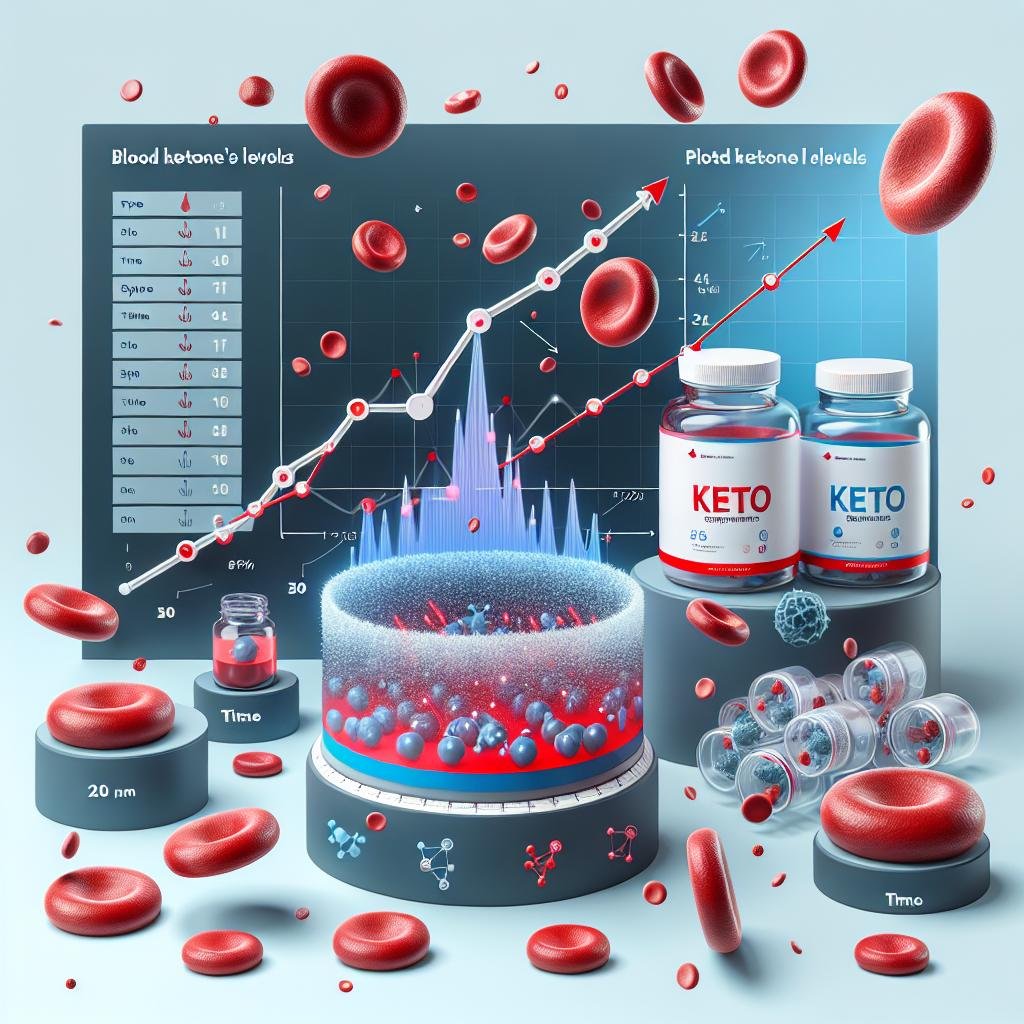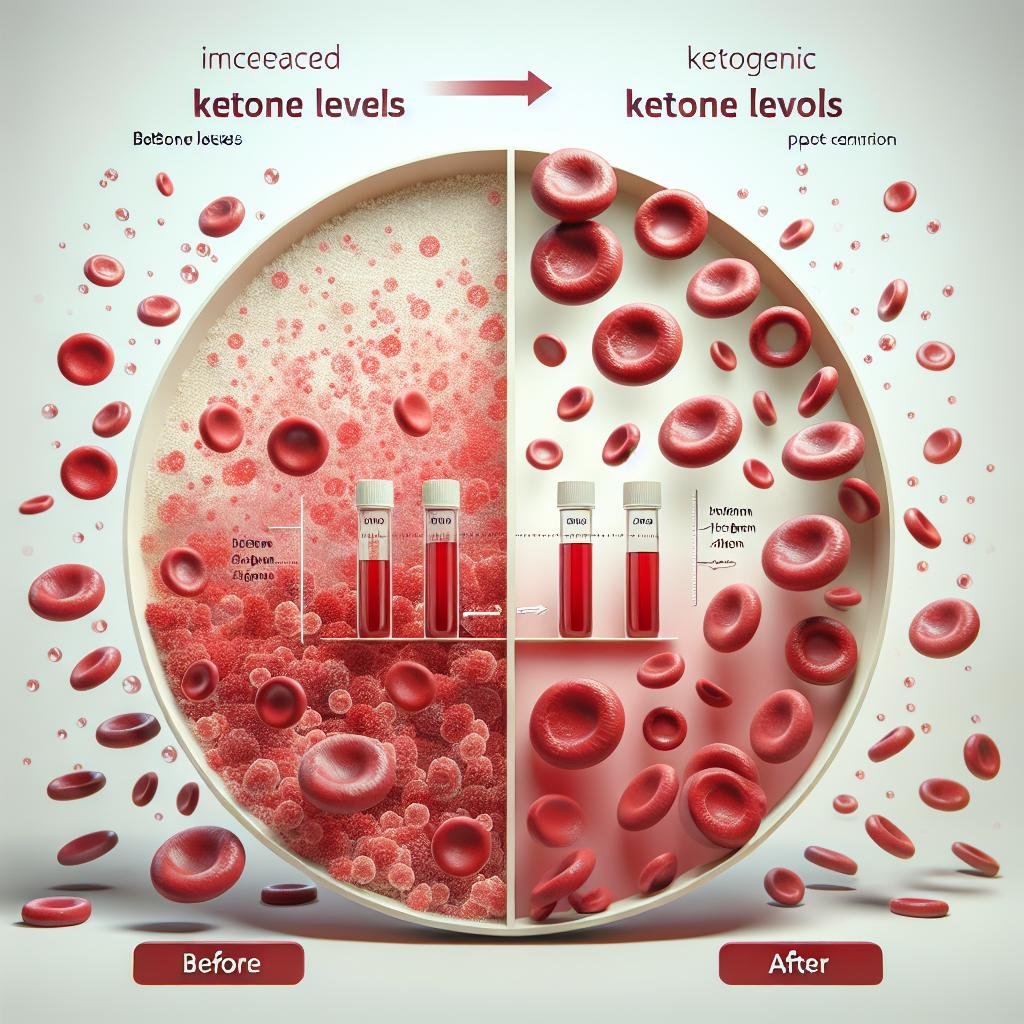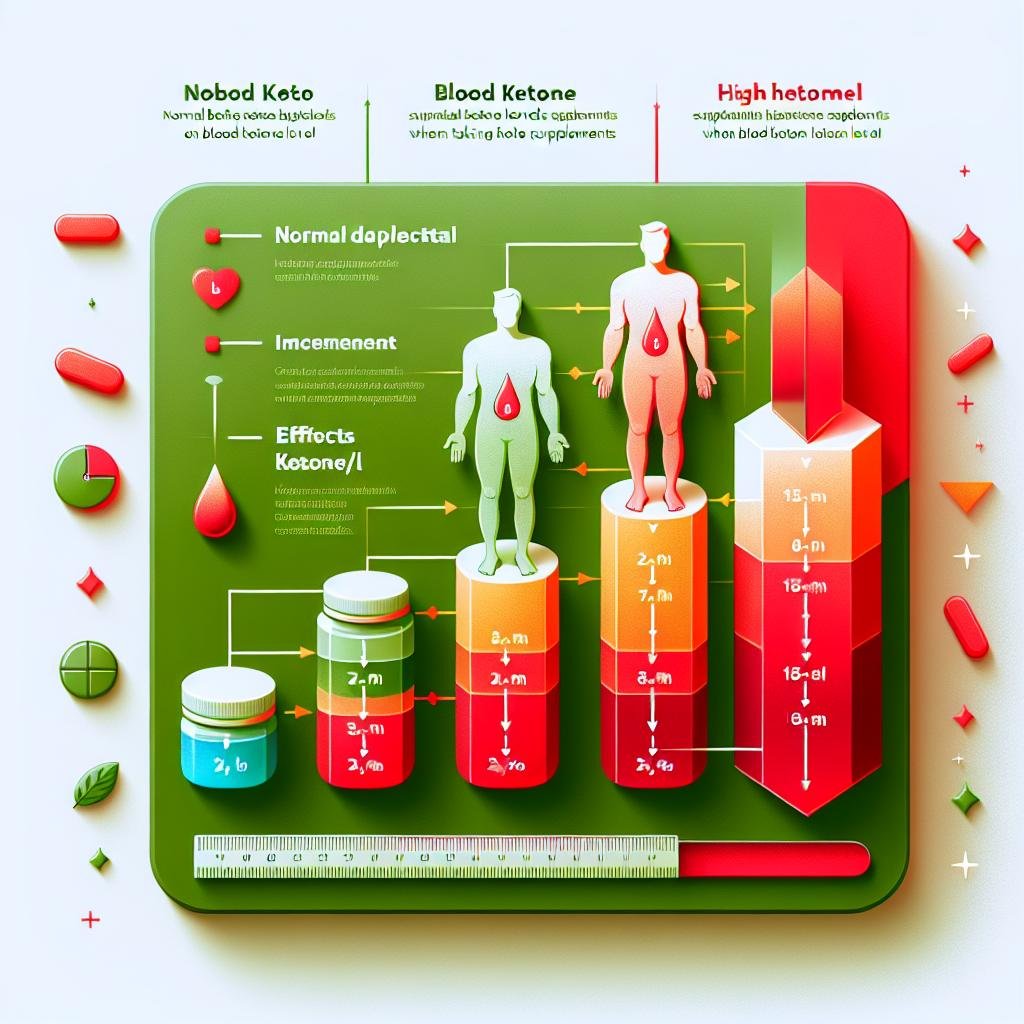In the ever-evolving landscape of health and wellness, the ketogenic diet has emerged as a popular approach for achieving weight loss and enhanced mental clarity. As individuals embark on this low-carb journey, a subset of supplements has gained notoriety for its potential to boost and sustain blood ketone levels: keto supplements. But what exactly are these mysterious compounds, and how do they influence our bodies’ delicate balance of ketosis? In this article, we delve into the science behind keto supplements, unraveling their effects on blood ketone levels and offering insights into how they may serve as valuable tools for those seeking to optimize their ketogenic lifestyle. Join us as we navigate this intriguing intersection of nutrition, biochemistry, and personal health, shedding light on the truth behind keto supplementation.
Exploring the Science Behind Keto Supplements and Ketone Production
The fascinating relationship between keto supplements and ketone production is rooted in metabolic science. When the body is in a state of ketosis, it shifts its primary energy source from carbohydrates to fats, leading to the production of ketones in the liver. These ketones, namely acetoacetate, beta-hydroxybutyrate, and acetone, become crucial for providing energy, especially for the brain and muscles. Keto supplements, such as exogenous ketones, are designed to elevate blood ketone levels directly, potentially enabling a state of ketosis without strict dietary adherence. By introducing these supplements into the diet, individuals can experience a surge in energy and mental clarity more quickly, facilitating an easier transition into a ketogenic lifestyle.
Research has indicated that not all keto supplements are created equal. Understanding their efficacy requires a close examination of their ingredients and formulations. Common types of keto supplements include:
- Ketone Salts: These compounds combine ketones with salt, potentially improving absorption and enhancing hydration.
- Ketone Ester: A more advanced form of exogenous ketones that quickly elevate blood ketone levels but can be pricey.
- MCT Oil: Medium-chain triglycerides that not only provide a rapid source of fats for energy but also promote natural ketone production.
| Type of Supplement | Speed of Ketone Elevation | Cost |
|---|---|---|
| Ketone Salts | Moderate | Affordable |
| Ketone Ester | Fast | Expensive |
| MCT Oil | Gradual | Moderate |
By assimilating knowledge of these supplements, individuals can make informed choices tailored to their unique dietary needs and fitness goals. It’s essential to remember that while keto supplements can aid in increasing blood ketone levels, they are most effective when paired with a well-structured ketogenic diet and lifestyle, promising a multitude of benefits for those pursuing this metabolic approach.

Evaluating the Effects of Different Keto Supplement Types on Blood Levels
When it comes to the impact of various keto supplement types on blood ketone levels, understanding the mechanisms at play can offer insights into optimizing their effects. The primary keto supplements include exogenous ketones, MCT oil, and keto salts, each with distinct pathways and benefits. Exogenous ketones, typically available as BHB (beta-hydroxybutyrate) salts, provide immediate elevation of blood ketones, making them an attractive option for those looking to reach ketosis quickly. On the other hand, MCT oil, derived from coconut or palm oil, is metabolized rapidly by the liver to produce ketones, creating a sustained source of energy over time. This difference in metabolism can greatly influence how effectively these supplements raise blood ketone levels, varying from individual to individual.
It’s crucial to evaluate the actual effects of these supplements through empirical data. A concise comparison of blood ketone enhancements can be illustrated as follows:
| Supplement Type | Average Time to Peak Ketone Levels | Duration of Effect |
|---|---|---|
| Exogenous Ketones | 30 - 60 minutes | 2 – 4 hours |
| MCT Oil | 60 – 90 minutes | 4 – 6 hours |
| Keto Salts | 15 – 30 minutes | 3 - 5 hours |
Ultimately, the choice of supplement should align with individual goals, whether it’s achieving quick energy boosts or maintaining prolonged ketone levels. Regular monitoring and personal experimentation may be necessary to discover which supplement type works best for optimizing blood ketone levels effectively.

Best Practices for Incorporating Keto Supplements into Your Diet
When incorporating keto supplements into your diet, it’s essential to start with quality products. Look for supplements that are third-party tested and have transparent ingredient labels. Here are some tips to consider:
- Understand your goals: Determine whether you’re looking to boost ketone production, enhance physical performance, or improve cognitive function.
- Consult a healthcare professional: Before adding any supplement, especially if you have underlying health conditions, seek advice from a doctor or nutritionist.
- Monitor your intake: Keep track of the dosage and frequency of the supplements to ensure you’re not exceeding recommended levels.
Additionally, timing can significantly affect the efficiency of keto supplements. Consider the following strategies:
| Time of Day | Supplement Type | Purpose |
|---|---|---|
| Morning | BHB salts | Kickstart ketosis and boost energy levels |
| Pre-workout | Exogenous ketones | Improve endurance and stamina |
| Before bed | Keto MCT oil | Support overnight energy and recovery |
By aligning your supplement intake with your lifestyle and goals, you’ll be better positioned to maximize the benefits of a ketogenic diet while keeping your blood ketone levels optimized.

Understanding Individual Variability in Response to Keto Supplements
When it comes to the effectiveness of ketogenic supplements, individual variability plays a crucial role in determining how blood ketone levels respond. Factors such as genetics, diet composition, activity level, and overall metabolic health can all significantly influence the efficacy of these supplements. For instance, some individuals might experience a rapid increase in ketone levels shortly after supplementation, while others may show only minimal improvements. Understanding these differences can help users tailor their approach to supplementation, as not everyone will experience the same results.
A handful of key elements contributes to this variability:
- Genetic predisposition: Some individuals may naturally convert fat to ketones more efficiently.
- Pre-existing metabolic state: Those who are already adapted to a ketogenic diet might respond more favorably to supplementation.
- Dietary habits: A higher intake of carbohydrates may interfere with the desired effects of ketone supplements.
- Activity levels: Individuals who exercise regularly may experience enhanced ketone utilization compared to those who are sedentary.
To illustrate these variations in response, consider the table below, which summarizes the effects of keto supplements on different user profiles:
| User Profile | Ketone Level Increase | Response Time |
|---|---|---|
| Experienced Keto User | High | 30 minutes |
| New Keto Adopter | Moderate | 1 hour |
| Carb-Heavy Diet | Minimal | 2+ hours |
| Active Individual | High | 45 minutes |
In Retrospect
delving into the world of keto supplements reveals a complex interplay between dietary choices and biochemical responses. The evidence suggests that while these supplements may influence blood ketone levels, their effects can vary widely among individuals, shaped by factors like diet, metabolism, and lifestyle. As you embark on your ketogenic journey, it’s essential to approach these supplements with a discerning eye, understanding that they are not a one-size-fits-all solution. By balancing knowledge with personal experience, you can make informed decisions that align with your health goals. Remember, true mastery of the ketogenic lifestyle lies in understanding your body and listening to its unique signals. Whether you choose to incorporate supplements or not, the pathway to wellness is ultimately yours to navigate—step by step, ketone by ketone.

